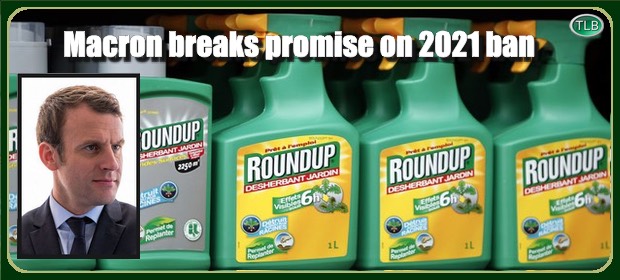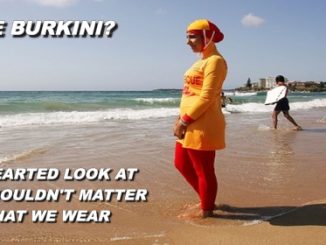
Macron backs down on pledge to ban glyphosate in France
SARAH ELZAS
 Glyphosate is the main ingredient of popular weed killers like RoudUp used by farmers, like on this farm in central FranceChristian Hartmann/Reuters
Glyphosate is the main ingredient of popular weed killers like RoudUp used by farmers, like on this farm in central FranceChristian Hartmann/Reuters“I’m not going to lie to you, it’s not true,” Macron said on Thursday about the government’s ability to phase out the herbicide by 1 January 2021.
In November 2017 President Macron rejected a European Commission decision to reapprove the use of glyphosate for five years. He pledged to ban the product within three years.
Speaking yesterday during a public debate in south-eastern France, Macron said that if he went ahead with that promise he “would be completely killing some sectors”.
Farmers have been pushing back, saying that three years is not enough time to find an alternative that is both economically viable and environmentally friendly.
Glyphosate is now off patent, but was originally developed by Monsanto and is the key ingredient in RoundUp, the world’s most widely used weed killer. It affects plants, fungi and bacteria, but is not immediately dangerous for birds, insects or other animals, which is why farmers have been pushing back on the ban.
Eighty percent cut by 2021
Farmers are exempt from the ban where there is no credible alternative to the pesticide. Within months of announcing the ban, Macron recognised that 10 percent of farmers would need an exemption.
Agriculture minister Didier Guillaume said that because of the number of exemptions, the phase-out will probably affect only 80 percent of current users by 2021.
The complete ban is a “political objective,” he said on French television on Friday: “If we get there faster, so much the better… If we don’t, the president has always said we shouldn’t leave anyone without a solution.”
Victim of the yellow vests
Environmentalists see Macron’s shift as a concession to the pressure he is under due to the yellow vest protests of recent weeks.
“Today apparently the choice is being made to calm the situation and not open up a new front in a period of protest with the yellow vests,” François Veillerette, spokesperson for the Générations futures environmental group, told RFI. “This is not the way we should be making responsible environmental and health policy. We think there should be a long-term policy, even if it is difficult.”
There are different methods to get rid of weeds, he said, but they need to be embraced by farmers.
“Saying that [the glyphosate ban] will not happen sends a message to the agricultural world that they should go ahead and keep using the product,” said Veillerette. “We were expecting the opposite message: That we are maintaining the objective to get out in three years, and we are going to help support research and techniques to get there.”
His and other environmental groups intend to use a recent court decision to go after glyphosate-based products on the market.
An administrative court in Lyon last week struck down the 2017 license for Roundup Pro 360, saying that regulators had failed to take safety concerns into account.
(with Lucie Bouteloup)
******
The French environment agency Anses this week found traces of glyphosate, along with other potentially toxic substances, in babies’ nappies in France.
Matthieu Schuler, risk evaluation director for Anses, told RFI that the dozen or so toxic substances found in the diapers can be divided into three groups: intentionally added products like fragrances; by-products of the manufacturing process; and those that come from the raw materials.
Nappies are made with cotton or corn starch, and the chemicals used on those crops can find their way into the final product.
“There is a way for manufacturers to set up better controls on their suppliers,” he said.
He also called on more public oversight on production methods in general.
Reacting to the report, the French government called on manufacturers to take measures within two weeks to eliminate the substances from nappies.
************
Original article
ER recommends other articles by RFI





Good people. Fellow humans. Glysophate is a known carcinogen. Please tell me in all honesty that you want your vegetables saturated with this compound. Are you suicidal. Agenda 2030 in play.